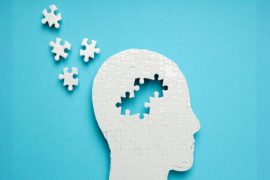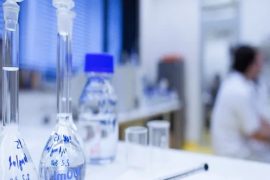We are currently exposed to a wide range of toxic substances (e.g. pesticide residues, nitrates, antibiotics, polycyclic aromatic hydrocarbons, acrylamide, heavy metals). They come not only with food, but also with water, air and soil. Should you be afraid of them, and should you cleanse yourself of toxins with the help of a detox diet? The answer is below.
Should you follow a cleansing diet?

If you want to detoxify, you probably think that I am “poisoned.” But have you ever wondered WHAT your body is poisoned? Exactly! We only hear about “toxins” and “harmful compounds”, but no one promoting detoxification diets specifically tells you what to detoxify from.
Without specifying a specific toxin (e.g. arsenic, cadmium, lead), treatment cannot be started. It is not the case that one cleansing or detox diet can eliminate all possible contaminants. So slogans about “detoxification” serve more marketing than a real need to remove toxins from the body. If you were poisoned, you would probably already be in a toxicology hospital bed.
Four important systems or organs in the body are responsible for removing all waste products of metabolism and neutralizing toxins:
- Urine excretory system – these compounds are excreted in the urine
- Respiratory system – these connections are removed with exhaled air.
- The digestive tract (removes them along with undigested food debris) and the liver (performs a detoxifying function).
- So if you have a functioning urinary system, respiratory system, and liver, you probably don’t need to worry about “toxin poisoning.”
What common detoxification methods are at risk?
The most common methods of cleansing the body of toxins are fasting and the so-called mono-diet, that is, a diet limited to one or several foods (for example, juice, fruit and vegetable diet, soup diet, etc.). What are the dangers?
Fasting usually consists of a complete refusal of food intake or in its restriction. They can lead to imbalance in water and electrolyte balance, fainting, headaches, weakness, and immunosuppression. They are especially dangerous for people with, for example, gout, obesity in the liver and gallstones (which can worsen the disease) and diabetes (which can lead to too low blood sugar and ketocoma). Fasting also leads to the loss of muscle tissue (not fat, which people who use it expect) and a slower metabolic rate, which leads to the yo to effect.
It may interest you: Diet for bowel cleansing: what to eat:?
Juices or fruit and vegetable diets that detoxify the body can lead to nutritional deficiencies (proteins, fats, carbohydrates, vitamins and minerals). This can lead to many conditions (such as hypothyroidism, gallstones, and gout attacks) or worsen existing conditions. It is also worth noting that by consuming only a few select foods over many days or weeks, we are more susceptible to being “poisoned” by the substances they contain. With a varied diet, including a variety of foods, this risk is much lower.
It should also be mentioned here that cleansing diets such as detox could poison the body! You ask – how? Many toxins (e.g. dioxins) accumulate in adipose tissue. Rapid weight loss through fasting or a detox diet can release toxins stored in fats into the bloodstream.
Detox diet – what to eat
A safe, detoxifying diet should not be based on detoxification, but on the continued implementation of healthy eating habits. Such a diet should be rich in vitamins C, E, beta-carotene, selenium, zinc and antioxidant polyphenols. Their sources are mainly vegetables and fruits (preferably raw and whole), nuts, seeds and seeds.
The cleansing of the body from harmful substances is also supported by dietary fiber, which improves bowel function. It also has the ability to bind toxins and remove them from the body along with undigested food debris. The best sources of fiber are vegetables and fruits, whole grains (whole grain breads, cereals, cereals, brown rice, whole grain pasta, bran), legumes, nuts, seeds, and seeds.
In this case, you should drink a sufficient amount of water – at least 2 liters, and in hot weather, with fever, diarrhea, vomiting or intense physical activity – adequately more. This will help remove waste products in the urine.








